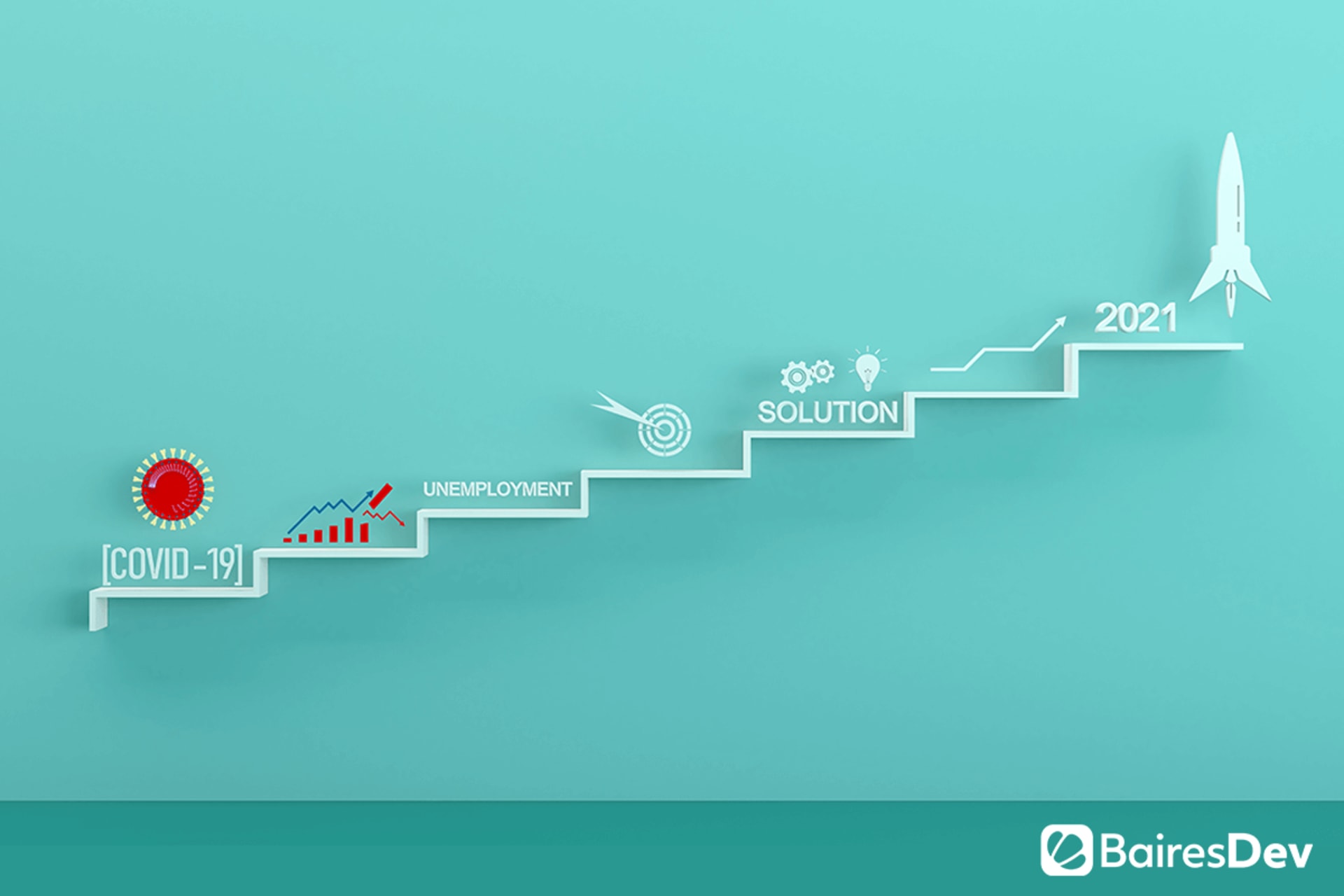Times have changed. Over the span of a few weeks, digital acceleration rose to the top of the agendas of hundreds of thousands of businesses around the world. Practically every industry had to adapt to new consumer habits, market trends, and value propositions, all while facing the many challenges the pandemic brought with it.
Thus, embracing modern technology solutions became an intrinsic part of what we all know as enterprise resilience. This had a massive impact on the software outsourcing market, as all of these businesses instantly began to look for a strategic partner to drive their unique digital acceleration process.
While we’ve talked a lot about this phenomenon at The Daily Bundle, there is another element that plays a major role in this transformative period and one that not all businesses know how to implement: Quality Assurance.
Let’s Recap On Quality Assurance
Quality Assurance isn’t a new topic for most business leaders. However, it never hurts to repolish your knowledge every now and then. So let’s take a quick look at what Quality Assurance is and how it benefits your business.
Speaking in formal terms, Software Quality Assurance is an end-to-end process where specialized engineers carry out the continuous testing and monitoring of software products throughout the development process. To look at it from a different angle, we can also say that the role of QA is to push the limits of an application in various directions and provide businesses with valuable insights that lead to higher-quality products.
Since this process often requires very niche expertise for its proper implementation, many companies prefer QA outsourcing over in-house alternatives, which most of the time end up being more expensive and time-consuming.
This is how a standard QA process looks in the grand scheme of things:
- Design: Quality Assurance must begin as soon as the product spec starts. Adopting a test-driven development approach is crucial for the tracing of initial user flows at the earliest stages of development. Needless to say, strong product bones will save lots of time and effort for the engineers.
- Implementation: Here, the focus shifts towards achieving long-lasting quality through organized unit testing. As the project progresses, the QA engineers can begin exploratory testing and refine the product flow. The key here is to maintain a Continuous Integration (CI) process while yielding high-quality data and preventing any issues from snowballing.
- Testing: As more and more testing begins to take place, the QA team will need to work hand-in-hand with the development team to prioritize every task and categorize them accordingly. Naturally, finding issues means fixing issues, so it’s fundamental to keep track of all progress in the project’s tasks. This way, the entire team can move on without ignoring relevant concerns.
- Maintenance: In Quality Assurance, maintenance is closely related to testing regression cases. While this is a valuable practice, the engineers need to guarantee that regression testing won’t detriment production once a task is done. Manual, automated, and crowdsourced testing can also come into play for mature projects.
How Digital Acceleration Revamped QA Processes
In a recent article, we took a closer look at how the pandemic changed the way most businesses approached cybersecurity. The trend is clear: as more and more organizations pushed for digital acceleration, those without the required expertise on board opened themselves to critical vulnerabilities in their software.
The main reason behind all of this? Subpar Quality Assurance processes. In the heat of the moment and in face of the many operational challenges COVID-19 brought with it, many companies felt forced to at least get something out. The main priority was to keep their heads above water. There was no time or resources to do QA the right way.
Now, as we enter the new normalcy with more ease, it seems like the world has left urgency behind and is now focusing on efficiency. For many, resources and personnel are limited, so outsourcing keeps rising as a cost-effective alternative for those looking to build high-quality software products.
However, the rapid changes and evolving needs of the market keep taking both B2B and B2C companies by surprise. In this framework of uncertainty, doing QA properly has become a must. Why? Because it’s the only way to guarantee that whatever you’re working on will actually have the flexibility to shift its value proposition in a smart way whenever required.
Similarly, every company needs to take into account the sudden flooding of digital activity that has taken place for months and probably will continue to rise through 2021. Standing out from competitors will require a critical factor that only Quality Assurance can provide: reliability.
Is QA Outsourcing the Way Forward?
For most businesses, QA outsourcing will most likely be the most cost-efficient alternative to develop their own high-quality solutions. Right now, investing in a new QA team from scratch is just not a viable option. Even companies that already have an internal IT department are likely to struggle with this since software developers are definitely not QA engineers.
Here’s what you can expect from outsourcing QA services.
- Access to the best QA engineers: In QA and software development in general, it’s fairly common for vendors to find and hire the best QA & Testing services in an entire region. Software outsourcing companies like BairesDev are experts in forming distributed teams of expert engineers that specialize in what you need and work when you need it.
- Free up internal resources: As you can expect, QA involves lots of complex and time-consuming tasks that are rarely related to your company’s operations. By outsourcing quality assurance, you can take that weight off your shoulders and give your in-house team more time to focus on your core business.
- Implement the industry’s best practices: In the IT industry, “best practices” is a very loose term, since the field is always evolving and finding new and better ways to do everything. As a result, the best quality assurance practices change constantly, particularly in the cybersecurity field. Through outsourcing, you get to work with people who are truly passionate about keeping up with the latest trends and testing methodologies.
- Minimize risks: In QA, it’s fairly easy to overlook things. The entire process is not only tremendously meticulous but also requires intense creativity from the engineers. A great team of QA engineers will avoid any downtime and leave no stone unturned so that your software solution can achieve maximum quality and performance expectations.
- Save money: An in-house QA team is expensive to build and maintain. What’s more, most of their roles are only temporary or very project-specific, so finding talented QA engineers that want to fill that position would be very time-consuming and not cost-efficient at all. Outsourcing QA services bypass all the costs of sourcing, hiring, and retaining Quality Assurance talent so you can get to work quickly while saving money.
The End Card
The post-pandemic world will continue to push every industry towards innovation via digital acceleration and custom technology solutions. To prepare for this process, every business needs to embrace Quality Assurance and put in the effort required to do it right, regardless of the size or their industry. As of now, outsourcing QA stands as one of the best ways to achieve proper quality processes and it’s perhaps the most viable option for most organizations. Regardless of the challenges tomorrow, building good software today will certainly yield advantageous results in the short and long term.







